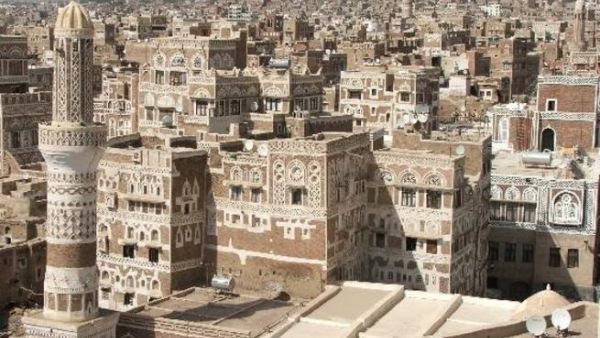Security instability in Yemen has not only resulted in thousands of deaths, injuries and the displacement of locals in governorates across the nation, but it has also devastated the tourism industry, leaving guides, agencies and shop owners without a source of steady income.
“The tourism situation is tragic. The majority of tourism agencies have lost millions of riyals,” said Basel Al-Ariqi, an executive member of the Yemeni Union for Tourism. “Tourism agencies laid off their employees even leading companies had to layoff their staff’s services.”
Abdullah Al-Hamdi, a manager of the five-star Ramada Al-Mukalla hotel in Hadhramout, said that the hotel has laid off 65 percent of its employees due to a steep decline in tourism.
With no indication of an influx in visitors anytime soon, Al-Hamdi says they may be forced to make more cuts from their now skeleton crew.
“We will close soon if the situation continues this way,” he said. “Until now, we’ve lost YR 120 million (approximately $558,000). We’re barely covering the operating expenses.”
Despite relative improvements in the situation, especially in the south where the state has gained back much of its lost control, Yemen still has an international reputation as a conflict ridden country, despite the efforts of citizens to dispel this label.
Although tourism agencies say they were suffering a bit before the uprisings that erupted in 2011, triggering the downward security spiral, the "war-zone" stigmas associated with Yemen continue to discourage potential international visitors.
Hotels and restaurants also say domestic tourism is at an all time low.
“It’s not only foreign tourists who find it difficult to go to some tourist places, Yemenis also face different difficulties such as banditry,” said Ahmed Al-Beel, manager of the Programs and Activities Department in the Ministry of Tourism.
Al-Beel said the industry is growing more and more distressed.
“I’ve visited several tourist restaurants and their owners keep asking me, 'Where are the tourists?'” he said.
Al-Ariqi blames the deterioration of the tourism sector on the government that “hasn't provided support for this vital and profitable sector.”
Fahd Frass, the executive manager of Yemeni Dreams Tourism and Travel Agency, also blames the government for her flagging financial state.
“We’re a real victim of security disturbances,” he said. “Unfortunately, the government doesn’t realize the significance of tourism in boosting the economy in the country.”
Recently, the Yemeni Dreams Agency booked 24 international tourists for a package trip that included a hotel and tour in Syoun, a city in Hadhramout known for its attractive historical buildings. But, at the last minute, the Tourist Police Office prevented the agency from moving ahead with plans, citing "security concerns."
“We were initially told by the Tourist Police that we can send our tourists to Hadhramout but when [the tourists] arrived in Sana’a we were told the opposite,” said Frass. “We’ve lost a lot of money, but we don’t care about money as we’re only worried about our reputation being damaged.”
“Such tourists could yield thousands of dollars for Yemen in a few days,” he said.
The Tourists Police defended their decision, saying such determinations come up suddenly because of Yemen's volatility and is for the safety of visitors.
“Everyday something new comes, so tourism agencies should always coordinate with us to know the areas that are put on the ban list,” said Colonel Dr. Mosed Al-Dhaheri, deputy manger of Tourist Police. He went on to say that travel bans often come suddenly.
Speaking to Yemen Times about the decision of the government on banning tourists to visit specific areas, Al-Beel said, “We appreciate that the government is worried about the safety of tourists but that doesn’t mean that they should abandon their duties in securing roads and imposing security,”
Currently, tourists are allowed in Ibb, Taiz, Hodeida, Sana’a, Hajja, Mahweet and Socotra, Al-Beel said.
Other areas that were one-time tourist destination like Marib and Hadhramout have been banned by the Tourist Police.

The continuing instability on Yemen is hurting the country's tourism industry







